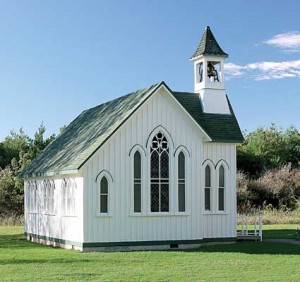Several homeschool leaders have recently learned that the way that their homeschool groups are compensating the teachers (parents paying teachers directly) jeopardizes the property tax exemption of their host churches.
The problem
Some state laws limit churches renting their building for business purposes to only a few days a year.
One homeschool program was arranging for teachers to conduct classes for homeschooled children each week for about 30 weeks of the year. Each teacher was paid by the parents, so each teacher was essentially a business owner. That meant the church exceeded the state-set limit on business activities.
This situation can put a church’s property tax exemption in jeopardy. It is likely the church would no longer wish to host a homeschool organization. If churches cease hosting homeschool programs, it could mean the end of many homeschool programs hosted in churches.
What can a homeschool group do?
So here are some issues for all homeschool leaders who conduct classes in churches to consider:
- Research your state property tax exemption laws and the limits on business activities conducted by churches. This document titled Property Tax Exemptions: An Overview of State Constitutional and Statutory Provisions may help. Down load it here https://www.civicfed.org/file/4794/download?token=3ifCi8dI It lists the property tax exemptions for each state in great detail (it’s a pdf file that is 460 pages long!).
Or try googling “YOUR STATE nonprofit property tax exemption” or “YOUR STATE church property tax exemption.” The rules vary by state. - Call your county property tax assessor and ask, “Can a church let a for-profit business use the church’s building on a regular basis without harming the church’s property tax exemption?”
- Talk to your host church about this issue. Ask what they know about limits on business activity for churches in your state.
- If your state’s property tax laws limit your host church, consider changing how your teachers are paid, so that the church is not renting space for business activities to for-profit businesses (i.e., individual teachers).
- Be sure your activities are in line with the religious and charitable purposes of your host church. Your organization may have to convert to a nonprofit organization to have a religious and educational purpose. Contact me for details on how to convert to a nonprofit organization.
Note that this affects churches’ property tax exemption, not their 501c3 income tax exemption at the federal or state levels.
I’ll keep an eye on this issue and keep you informed. Sign up for my email list (top right corner) to be notified of future blog posts on this issue.
Carol Topp, CPA


Hi Carol,
Thanks for always having our backs & informing us on things we would never think to look into on our own!
Do you happen to know what states this would be a concern for? We are in PA & wondering if you have an easy way to recommend finding out if it applies to us.
Thank you!
Jill Geoghan
Jill, unfortunately it is difficult to keep up with all the rules concerning property taxes for 50 states and all the counties in the US. Hopefully, your state homeschool organization will keep you informed, but these rules affect churches, not necessarily homeschool groups.
I subscribe to several email services for nonprofits and churches, so hopefully I will hear of changes that may affect homeschool groups.
I really appreciate it when homeschool leaders share their personal experiences and information that I can pass along to others.
Carol Topp, CPA
But when does a co-op paying its teachers make it a private school? Which is the larger issue?
Does gathering checks for distribution to teachers impact a either status?
Amanda,
Paying the teachers as employees does not make the organization a school. The criteria to be a school varies by state, but usually involves fulfilling compulsory attendance requirements. Most homeschool groups do not meet the compulsory attendance rules and are not schools.
The IRS also defines a school. I explain their definition here: How the IRS defines a school
You asked if gathering and distributing checks affects worker status as an employee or IC. There are many other factors to consider when determining a worker’s classification. Unfortunately, I cannot make a determination from what you told me.
I offer a service to help homeschool leaders determine if they are classifying, treating, and paying their workers correctly.
My book Paying Workers in a Homeschool Organization may be helpful to you.I explain the difference between employees and independent contractors.
Carol Topp, CPA
If a co-op is not a 501c3, does this affect how it should be paying co-op teachers? If it’s a self-declared 501c7 (I think that’s right?), does that still cover the group for the purpose of paying co-op teachers?
Vicki,
Your tax exempt status (501c3 or 501c7) does not matter when it comes to payroll taxes, employees, etc.
501(c)(3) or 501(c)(7) tax exempt status only grants nonprofit organizations tax exemption from federal income tax, not payroll taxes. In other words, nonprofit tax exempt organizations still have to pay payroll taxes such as SS/Medicare, workers comp, unemployment insurance premiums.
Carol Topp. CPA